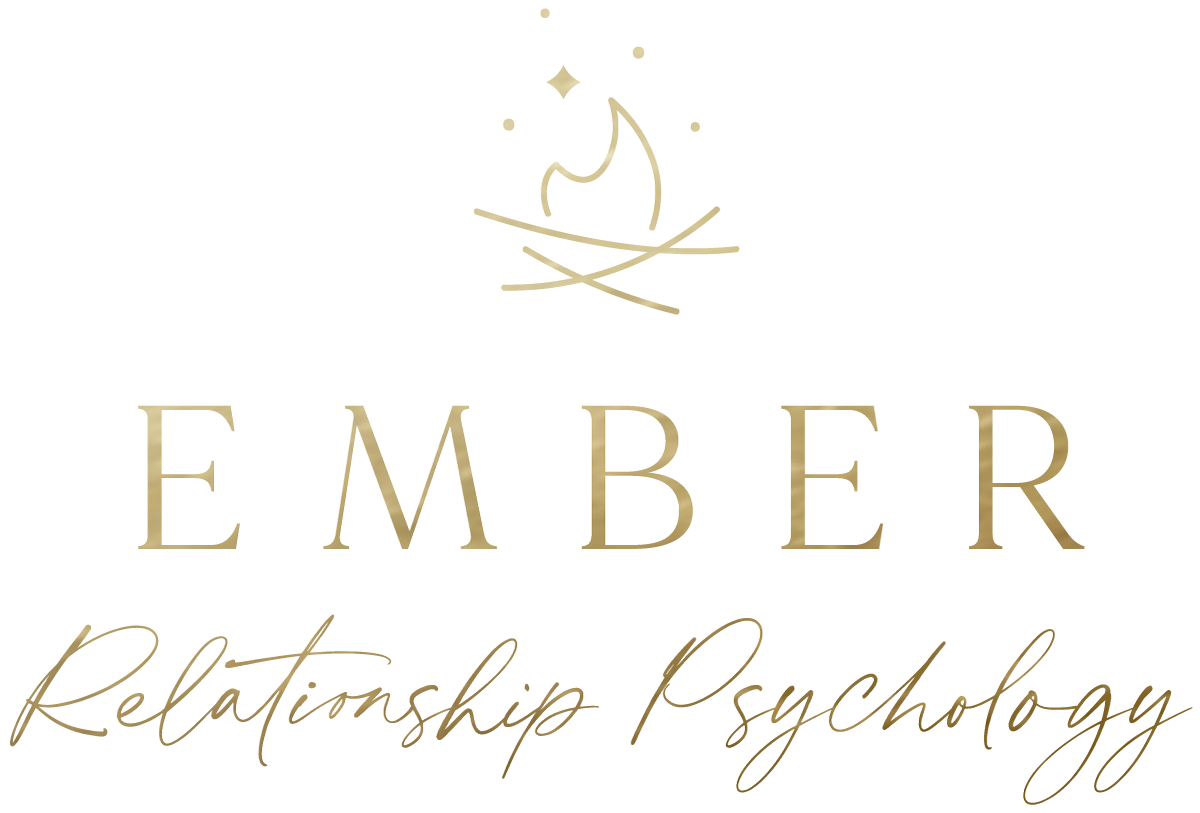Maladaptive Relationship Behavior
by Amber Dalsin, M.Sc., C.Psych.
From Gridlocked to Gratified -
2 Steps Toward Change
Maladaptive behaviors put strain on your relationship and make conflicts so much worse. Taking these two steps toward change can help couples find their way out of gridlock perpetual problems.
Learning new relationship skills takes work, and a willingness to do things differently. It requires taking those behaviors that you learned in your early life, recognizing their influence on you and finding ways to break the pattern.
Jenny and Ricardo have been fighting about housework. Ricardo never does anything around the house. Jenny feels disrespected, like she’s his employee instead of his partner. She often uses a clipped tone and makes passive aggressive remarks like how it must be nice to sit on the couch and have your maid take care of everything. Ricardo hears these and shuts down. When she raises her voice, he begins to avoid her.
1. Identify
When we feel upset, angry, tearful, frustrated, disrespected, or like our feelings don’t matter, these are cues―we are triggered.
Triggers come from somewhere.
Let’s look at the backgrounds of Jenny and Ricardo to find the roots of their behaviors.
Ricardo’s family has a housekeeper who does the cleaning. In fact, Ricardo had never done a chore in his life until he moved in with Jenny. While he intellectually understands he needs to help out, he often forgets or rationalizes that he’s letting Jenny do it the way she wants.
His parents were physically violent with each other. As soon as his mother raised her voice, Ricardo knew to hide in the closet. He learned what would come next, the physical fight. Raised voices became a massive trigger for him, signaling him to escape the dangerous situation.
Jenny’s mother and father were very affectionate. At times they raised their voices, but later they apologized. For Jenny, raising your voice is okay as long as you say you’re sorry later. In addition, her parents ran a strictly equal household around housework. In Jenny’s eyes they were teammates who had each other’s back.
To Jenny, Ricardo’s lack of housework meant he didn’t respect her, and they were not on the same team. She would become irate when he shut down. It was like a brick wall in front of her, and she didn’t get why a slightly raised voice would cause that reaction.
Jenny and Ricardo’s gridlock perpetual problem isn’t just about folding the laundry or doing the dishes, it’s deeply rooted in their beliefs, values, and early learning. The reasons they react so strongly during these conflicts are rooted in triggers drawn up from the past.
The first step in overcoming this conflict is to name and identity the feelings in the current moment, and where the trigger came from.
2. Tell Stories to Trusted People
The second thing we can do to heal from our unhelpful behaviors is to share trigger stories and our past experiences with trusted people, specifically our partner. The caveat is that you must know you can trust your partner with your story. In cases where conflict is severe, or contempt is present, these vulnerable stories can be used to hurt one another. That is the opposite of helpful.
Sharing stories is a combination of emotional processing and helping your partner understand your inner world, so you can generate unique compromises for your relationship that draw upon your backgrounds and incorporate both of your needs.
In sharing our stories, we often soften to our partners and empathize with their pain. When we step outside of our wants and needs and put ourselves in our partner’s shoes it is easier for us to incorporate a touch of our partner’s needs and wishes into our solutions.
Now if you don’t think you are ready to share with your partner, or don’t think your partner can empathize, you could try sharing with a trusted friend or therapist. If you think your partner may struggle with empathy, ask them to just listen and not comment on your sharing.
Keep What You Need, Let the Rest Go
Nearly all, if not all, of our unhelpful behavior in relationships makes sense. Usually, this behavior was adaptive and worked for us in our early life. In adulthood, sometimes we have to look at what worked in the past and consider if those things are still helpful.
By understanding our early origins, telling our story, and intentionally choosing different words and actions, we can have relationships where we feel love and connection in a way we didn’t know was possible.
This blog is not meant to be a substitute for couples therapy or relationship counselling. This should not be construed as specific advice. See a relationship therapist in your area to address your specific problems.


